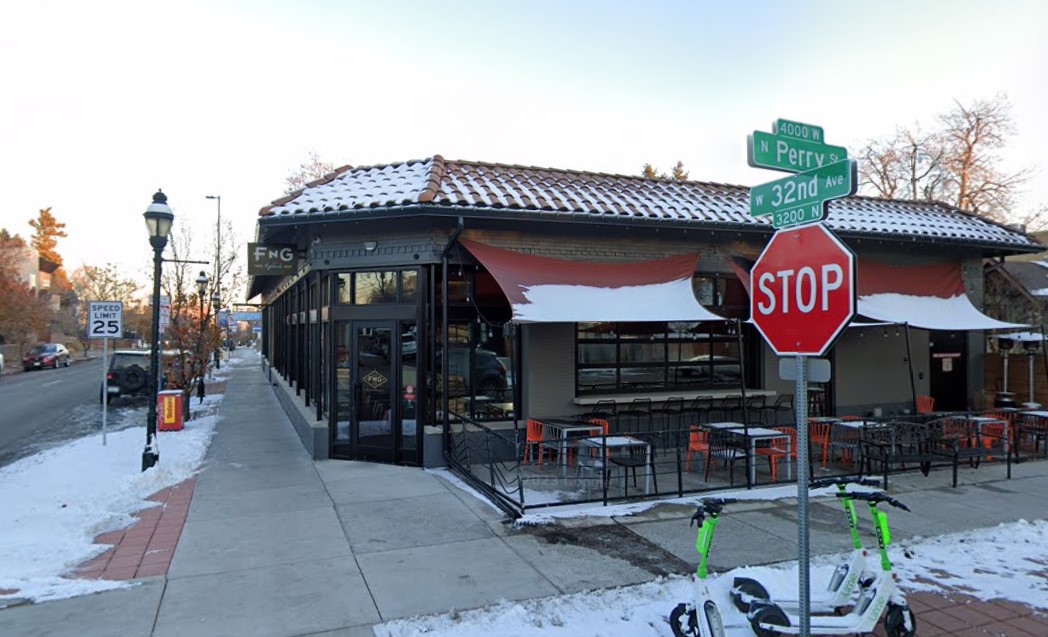A West Highland landlord has sued Denver restaurateur Troy Guard for closing a restaurant there after five years, allegedly violating his 10-year lease.
It’s the latest legal dispute to involve 3940 W. 32nd Ave., which is newly vacant after another restaurant there closed two weeks ago as a result of a trademark lawsuit.
“There’s not really much to say,” Guard said. “One person thinks they’re right, the other person thinks they’re wrong. Unfortunately, this is the way the system works. My thought process is that two smart people should sit down and prevail, but it’s not happening that way.”
Guard opened his first restaurant, Tag, in Larimer Square in 2009. His TAG Restaurant Group now includes a dozen diverse eateries, ranging from fast-casual bowl locations and boozy brunch joints to an upscale steakhouse with a dress code downtown.
For those reasons, Bautsch Investments was eager to lease its property at 3940 W. 32nd Ave. to such a “unique and high-profile tenant,” as it explained in a May 7 lawsuit.
“Bautsch Investments was led to believe that it was going into business with one of the most successful and well-known restaurant operators in Colorado,” the lawsuit said.
So, the landlord paid TAG Restaurant Group more than $100,000 to build out the new space and covered the $55,000 commission that TAG owed its real estate broker. It also convinced the city to rezone the property to allow for outdoor seating, according to Bautsch, and didn’t require the restaurant, called FNG, to pay rent for its first 20 months at 3940 W. 32nd.
“Bautsch Investments agreed to these concessions and provided these inducements based on representations from Guard that TAG would operate a successful business for the entirety of the ten-year lease,” said its lawsuit, filed in Denver District Court.
The lease commenced on Dec. 1, 2017, and FNG was an initial success, both sides recall.
“We were doing well until COVID happened and then coming back out, it struggled a little bit,” said Guard. “Trying to open one restaurant is one thing. Trying to open 14 restaurants like I did was challenging. I think that middle market (of restaurants) is now a little tougher.”
Bautsch said that it deferred rent payments for eight months in 2020 and 2021 to help its tenant and also allowed FNG to close for 45 days in mid-2021. But when the restaurant reopened on July 29 of that year, “it became evident that neither Guard nor TAG made the restaurant a priority and instead focused on other restaurants and ventures,” the landlord claimed.
FNG closed in June 2022 and in October of that year, Guard told Bautsch that it would not reopen, the latter said. Guard, who had personally guaranteed the lease, asked that he and his company be released from it, according to Bautsch, which denied the request.
“You’ve got to pick and choose and sometimes you’ve got to walk away, unfortunately,” Guard said last week as he thought back on FNG’s five-year run. “I loved that location and I loved the concept but it wasn’t doing what we needed it to do, so I had to pull the plug.”
Then, in May 2023, another restaurant took the space. But Rooted Craft Kitchen, with its vegetable-heavy American menu, soon drew the ire of Edible Beats, an employee-owned restaurant group that runs Root Down in LoHi and Vital Root in Berkeley.

Chef Nicholas Kayser works in the kitchen at Rooted Craft Kitchen on May 23, 2023, in Denver. (RJ Sangosti/The Denver Post)
Calling it a “knock-off restaurant in the neighborhood,” Edible Beats sued Rooted for allegedly running afoul of its trademarks. The two restaurant companies reached a settlement in early March when Rooted agreed to change its name. And then it closed April 28.
“You have to have your heart in it and I didn’t have the heart to change it and operate something that just felt patchworked,” Rooted owner Nicholas Kayser told The Denver Post.
Nine days after Rooted served up its final drinks and dishes, Bautsch Investments sued Guard and his company for breach of contract. Bautsch is represented by attorneys Stan Garnett, Andrew Garnett and Natalie Klee with Garnett Powell Maximon Barlow in Denver.
“It is what it is and we’ll wait to see what the judge says,” Guard said of the lawsuit Friday.
“I don’t have any negative things to say. I thought we worked through everything and they don’t think so, so now we have to have someone tell us who is right and wrong.”
A West Highland landlord has sued Denver restaurateur Troy Guard for closing a restaurant there after five years, allegedly violating his 10-year lease.
It’s the latest legal dispute to involve 3940 W. 32nd Ave., which is newly vacant after another restaurant there closed two weeks ago as a result of a trademark lawsuit.
“There’s not really much to say,” Guard said. “One person thinks they’re right, the other person thinks they’re wrong. Unfortunately, this is the way the system works. My thought process is that two smart people should sit down and prevail, but it’s not happening that way.”
Guard opened his first restaurant, Tag, in Larimer Square in 2009. His TAG Restaurant Group now includes a dozen diverse eateries, ranging from fast-casual bowl locations and boozy brunch joints to an upscale steakhouse with a dress code downtown.
For those reasons, Bautsch Investments was eager to lease its property at 3940 W. 32nd Ave. to such a “unique and high-profile tenant,” as it explained in a May 7 lawsuit.
“Bautsch Investments was led to believe that it was going into business with one of the most successful and well-known restaurant operators in Colorado,” the lawsuit said.
So, the landlord paid TAG Restaurant Group more than $100,000 to build out the new space and covered the $55,000 commission that TAG owed its real estate broker. It also convinced the city to rezone the property to allow for outdoor seating, according to Bautsch, and didn’t require the restaurant, called FNG, to pay rent for its first 20 months at 3940 W. 32nd.
“Bautsch Investments agreed to these concessions and provided these inducements based on representations from Guard that TAG would operate a successful business for the entirety of the ten-year lease,” said its lawsuit, filed in Denver District Court.
The lease commenced on Dec. 1, 2017, and FNG was an initial success, both sides recall.
“We were doing well until COVID happened and then coming back out, it struggled a little bit,” said Guard. “Trying to open one restaurant is one thing. Trying to open 14 restaurants like I did was challenging. I think that middle market (of restaurants) is now a little tougher.”
Bautsch said that it deferred rent payments for eight months in 2020 and 2021 to help its tenant and also allowed FNG to close for 45 days in mid-2021. But when the restaurant reopened on July 29 of that year, “it became evident that neither Guard nor TAG made the restaurant a priority and instead focused on other restaurants and ventures,” the landlord claimed.
FNG closed in June 2022 and in October of that year, Guard told Bautsch that it would not reopen, the latter said. Guard, who had personally guaranteed the lease, asked that he and his company be released from it, according to Bautsch, which denied the request.
“You’ve got to pick and choose and sometimes you’ve got to walk away, unfortunately,” Guard said last week as he thought back on FNG’s five-year run. “I loved that location and I loved the concept but it wasn’t doing what we needed it to do, so I had to pull the plug.”
Then, in May 2023, another restaurant took the space. But Rooted Craft Kitchen, with its vegetable-heavy American menu, soon drew the ire of Edible Beats, an employee-owned restaurant group that runs Root Down in LoHi and Vital Root in Berkeley.

Chef Nicholas Kayser works in the kitchen at Rooted Craft Kitchen on May 23, 2023, in Denver. (RJ Sangosti/The Denver Post)
Calling it a “knock-off restaurant in the neighborhood,” Edible Beats sued Rooted for allegedly running afoul of its trademarks. The two restaurant companies reached a settlement in early March when Rooted agreed to change its name. And then it closed April 28.
“You have to have your heart in it and I didn’t have the heart to change it and operate something that just felt patchworked,” Rooted owner Nicholas Kayser told The Denver Post.
Nine days after Rooted served up its final drinks and dishes, Bautsch Investments sued Guard and his company for breach of contract. Bautsch is represented by attorneys Stan Garnett, Andrew Garnett and Natalie Klee with Garnett Powell Maximon Barlow in Denver.
“It is what it is and we’ll wait to see what the judge says,” Guard said of the lawsuit Friday.
“I don’t have any negative things to say. I thought we worked through everything and they don’t think so, so now we have to have someone tell us who is right and wrong.”


